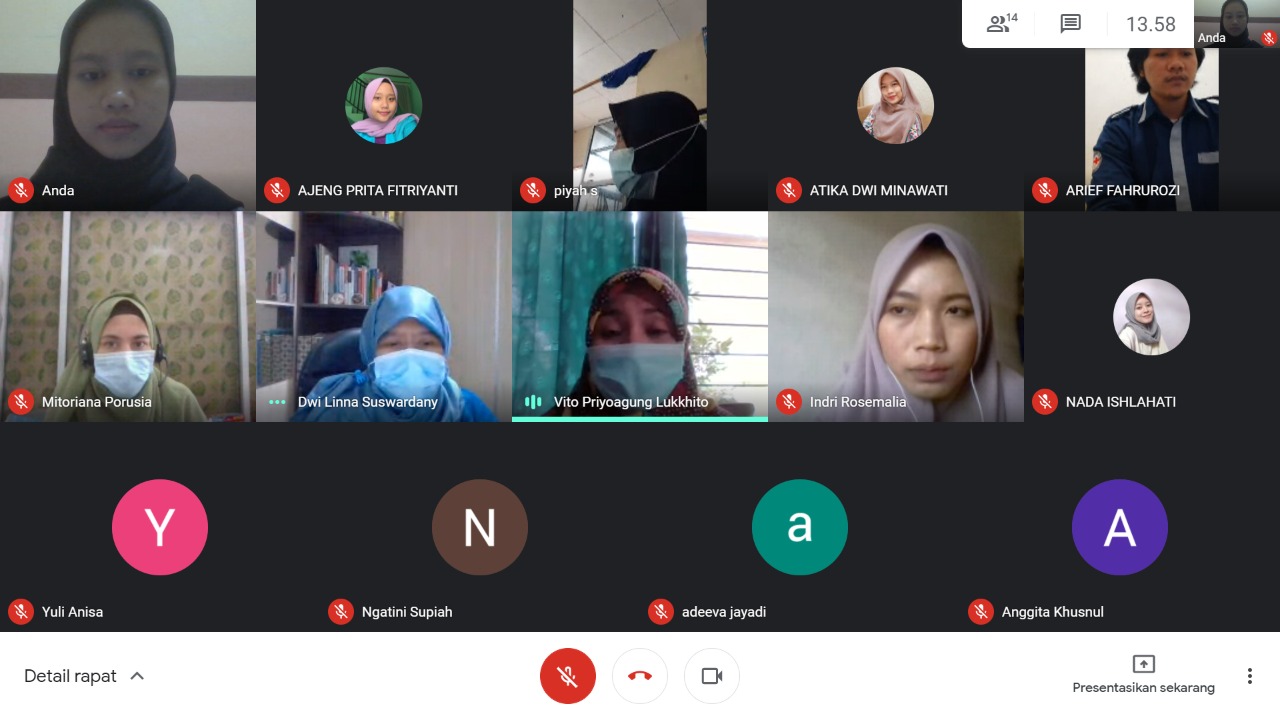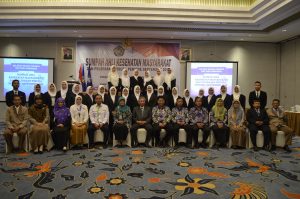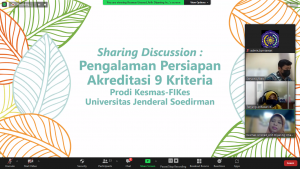
The condition of the world that is experiencing a pandemic due to the Covid-19 virus makes all activities adapt to a pandemic situation like this. Many agencies or offices must make changes to the way they work and make new rules as an effort to prevent the transmission of the Covid-19 virus.
Likewise in the education sector, the teaching and learning process which was originally face-to-face (Offline) has changed to Online (In-Network).
Universitas Muhammadiyah Surakarta (UMS) as one of the education sectors did not escape changing lectures which were originally offline to be changed to online.
The Public Health Study Program of the Faculty of Health Sciences, which is part of UMS, has made various innovations so that lecturers and students can quickly adapt to this online lecture. All lectures are made online using the available meeting platform and follow the rules that have been made by UMS. In the Public Health Study Program, apart from theoretical lectures, there are also practicals carried out in the laboratory and outside the campus. For in the laboratory, the practice is made in videos which are carried out by supporting lecturers assisted by laboratory assistants, for off-campus practices some are carried out in the community and in office agencies or companies.
The UMS Public Health Study Program has just carried out practical activities for students outside the campus, namely Field Learning Practice I (community) which was carried out online from February 1 to March 29, 2021, attended by 7th semester students and for the area according to the domicile of each student.
PBL activities are carried out to apply lecture materials that have been obtained by students. In its implementation, the study program creates a guidebook containing online PBL procedures, starting from PBL lectures, implementation such as taking care of licensing, analysis, surveys and deliberation using platforms according to community conditions, such as meeting applications and whats app groups.
According to the PBL coordinator, Mrs. Rezania Asyfiradayati, S.KM., MPH and Mrs. Izzatul Arifah, S.KM., M.Kes, Alhamdulillah, the online PBL implementation went smoothly even though she still had problems but according to her the problem was not a problem that would interfere with the PBL operation and would we discussed in the PBL I and II evaluation meetings.
And not to forget, both of them thanked all stakeholders such as village officials, health workers and the community who have sincerely helped and guided students in the implementation of PBL, we also thanked the supervisor of the public health study program who always patiently gave guidance to students.




